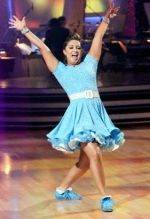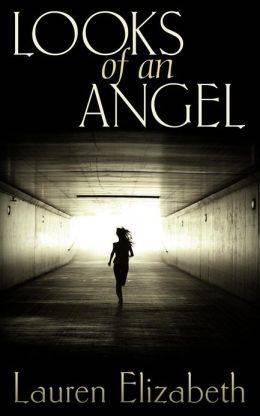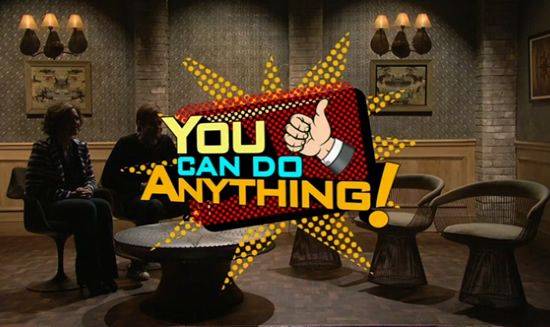 I once watched an entire season of Dancing with the Stars. I have no excuse other than I lived in the suburbs, my husband worked at night, and I was alone a lot. It was the season with Bristol Palin, Jennifer Grey, and Brandy, among others. Being unfamiliar with the show, the judging really took me by surprise. They would give contestants with no aptitude for dancing whatsoever the same score as they would give someone who danced really well. It was really confusing.
I once watched an entire season of Dancing with the Stars. I have no excuse other than I lived in the suburbs, my husband worked at night, and I was alone a lot. It was the season with Bristol Palin, Jennifer Grey, and Brandy, among others. Being unfamiliar with the show, the judging really took me by surprise. They would give contestants with no aptitude for dancing whatsoever the same score as they would give someone who danced really well. It was really confusing.
Reviewing a book self-published by a teenager is kind of like the judging on Dancing with the Stars. Should I review the book using the same criteria by which I would critique a book put out by an adult through an esteemed publishing house, or should I review it for what it is? I still don’t know, but I’m going to try and be both honest and fair.
Looks of an Angel is written by local teenager Lauren Elizabeth. It begins on the planet Pluto with the protagonist, Aly, lying in her backyard staring up at planet Earth. Without a telescope. From Pluto. Aly wonders what life on Earth is like, even though the life she has on Pluto is very similar, if not identical, to the life of an average American teenager: her best friend is a cheerleader; she wears sweatpants; she blows up balloons for a birthday party. The list goes on.
Aly’s life is turned upside down when invaders from Neptune capture her and begin to experiment on her, changing her physically. Then, she is made to fight to the death in an arena with her love interest, who can read minds. So, if you liked The Hunger Games and Twilight, with a little pinch of the genetic controls of Matched,  then Looks of an Angel is for you. Aly searches to find out why the Neptwainians (that’s what they’re called) changed her and who is responsible for the to-the-death-competitions.
then Looks of an Angel is for you. Aly searches to find out why the Neptwainians (that’s what they’re called) changed her and who is responsible for the to-the-death-competitions.
The failures of this book aren’t so much the author’s fault as the fault of the self-publication industry. The book is wrought with spelling and verb errors, punctuation mistakes, inconsistencies, and awkward wording. This is not to say that professionally published books don’t have these issues, but they’re minimized to the point where there isn’t some kind of distraction on every page. There are standards and processes that publishing houses have, and allowing writers to publish their own work bypasses these processes and yields an inferior product.
Often, Elizabeth over-explains things that don’t need elaboration, while nonsensical things that require an explanation aren’t clarified at all. Among these questionable items are: why are the Neptunians called Neptwainians? When deciding where to go, Aly avoids Jupiter because it is “too cold.” Really? And Pluto wasn’t? There are apple orchards and chickens on Neptune? She has been gone from Pluto for weeks, yet her friend eats cake that had been sitting out the whole time when they return? (That last one is nitpicky, perhaps, but cake does go bad, right?)
Then there are parts like this: “I imprinted this day in my mind, even though we weren’t in the best situation, for it was definitely something I wanted to remember.” The explanation for imprinting it is unnecessary. And why use “for” instead of “because” throughout the book?
There isn’t a a lot of dialogue for the first half of the book, and when there is, it’s usually clumsy. Sometimes characters avoid contractions in dialogue, making them sound oddly stiff and formal. I thought this was a deliberate choice by the author to show the characters’ personalities, but then the characters would switch to using contractions. These inconsistencies are often distracting.
Readers also have to make it through about three quarters of the book before they get any answers as to what is happening. After waiting that long, the answer given seems bizarre and inadequate. What happens next is suspiciously similar to the events in the second book of the The Hunger Games trilogy, Catching Fire.
 Reading this book reminded me of a Saturday Night Live sketch called “You Can Do Anything.” In it, the two hosts interview guests of the YouTube generation. As one host says, “Now, thanks to technology … it doesn’t matter if you have skills or training or years of experience. You can do it!” The guests each detail their high aspirations. When questioned about why his confidence is so high, one guest says, “No one has ever been honest with me about how mediocre I am.”
Reading this book reminded me of a Saturday Night Live sketch called “You Can Do Anything.” In it, the two hosts interview guests of the YouTube generation. As one host says, “Now, thanks to technology … it doesn’t matter if you have skills or training or years of experience. You can do it!” The guests each detail their high aspirations. When questioned about why his confidence is so high, one guest says, “No one has ever been honest with me about how mediocre I am.”
Let me be clear that Lauren Elizabeth is far from mediocre. Her passion and determination, as well as her commitment to writing a book from beginning to end is admirable, and I wish more teenagers possessed her creativity and stamina. However, when teachers and parents encourage their students and lead them to believe that they can do anything, then young people are imbued with a false sense of confidence. That doesn’t mean that they won’t or can’t be successful: Rebecca Black’s mom paid for her to make the “Friday” video, and that song made it in the Billboard Hot 100. Most people agree, though, that commercial success doesn’t necessarily equate quality. When proper channels are ignored, quality suffers. The song was successful, but it was also a joke.
As a teacher, though, I would rather have fifty Lauren Elizabeths who have the confidence and dedication to write a book than fifty students who are insecure and treat writing like torture. Does this book leave me with enough questions to fill a sphere roughly the size of Pluto? Yes. But, despite its flaws, am I curious about the next book? Absolutely.








